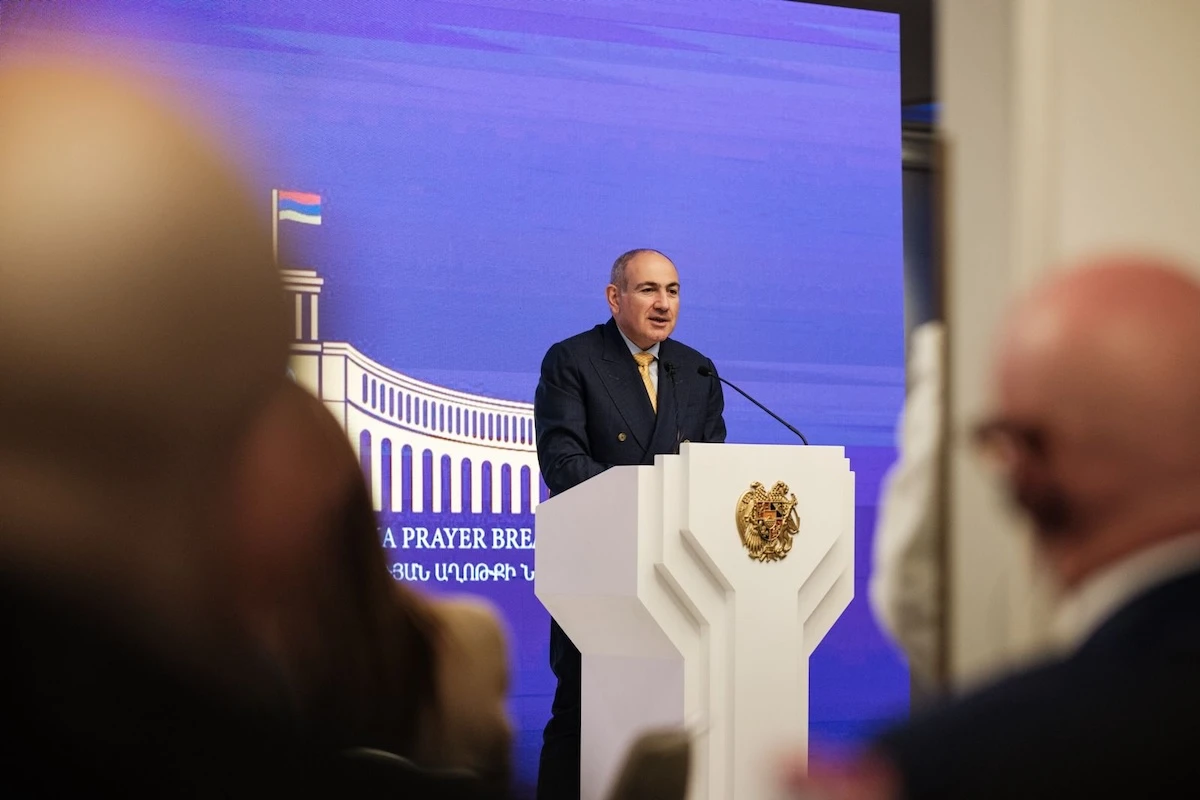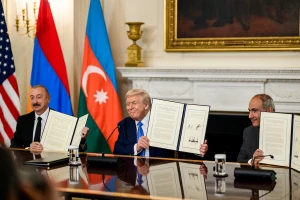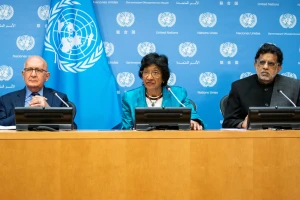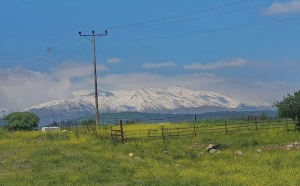Global implications: Could developments in Armenia impact the Abraham Accords?
Inaugural Prayer Breakfast in world’s first Christian nation was supposed to host Charlie Kirk but packed an influential punch nonetheless

YEREVAN, ARMENIA – The ripple effects of recent political developments in the Caucasus could extend to the Middle East, impacting the future of the Abraham Accords' normalization agreements and trade with Israel.
That was one of several takeaways from the Republic of Armenia Prayer Breakfast, which highlighted the shifting geopolitical posture of the world’s first Christian nation and its role in the broader region.
Charlie Kirk – the conservative influencer and political activist who was shot and killed for his views in September – was scheduled to be the keynote speaker of the inaugural Armenia Prayer Breakfast. In recent years, Kirk became convinced of Armenia’s critical role as the world’s first Christian nation.
The prayer breakfast event, which took place in Yerevan on Nov. 14 and 15, drew 300 local and international political, business and religious leaders from a spectrum of religious backgrounds and nationalities. It also came at a time when the country is experiencing deep turmoil between church and state.
Armenia – a former Soviet Republic which is a neighbor and economic partner of Iran – finds itself at a crossroads, geographically between hostile neighbors, and geopolitically as it lurches between Russian influence and Western aspirations.
“The growing relationship between Armenia and the United States has the capacity to contribute to stability and empower states to pursue development,” Armenian Deputy Foreign Minister Robert Abisoghmonyan said at the summit.

On the sidelines of the summit, when asked about whether Armenia is exploring to join the Abraham Accords, Armenian Prime Minister Nikol Pashinyan said, “we are looking” into it, but did not expound.
Pashinyan, who addressed the summit twice from the stage, quoting large portions of scripture by heart, said Armenia is on a journey to find the path that God has prepared “for our people and state, a journey from war to peace.”
Pashinyan attended his first “prayer breakfast” in Washington D.C. in February – skeptically at first and before the one in Armenia was even planned.
“In hindsight, I see this as personal providence because it played a role in the subsequent peace process,” he said referring to the peace agreement brokered by U.S. President Donald Trump between Armenia and Azerbaijan in August.
The nation is still healing from several devastating wars with Azerbaijan in the past five years and the loss of Artsakh, or Nagorno-Karabakh, an independent republic comprised of 120,000 ethnic Armenians. Almost all residents fled into Armenia after a 10-month blockade imposed by Azerbaijan which then took over the enclave in September 2023. Several political and military leaders were arrested and are being tried in Baku.
The Trump-brokered deal between Armenia and Azerbaijan includes a corridor designed to connect the countries in the region. Many panelists at the prayer breakfast said the Trump Road for International Peace and Prosperity (TRIPP) could open opportunity for international transportation and create new shipping routes from Central Asia to Europe. The most recent nation to join the Abraham Accords was Kazakhstan, a former Soviet republic located in Central Asia.
Jacob Pursley, one of the prayer breakfast organizers, said he believes that “Armenia is in the best position it has ever been in its history.”
Armenian opposition parties criticized the prayer breakfast as taking a pro-government stance. However, summit participants were taken to the Holy See in Echmiadzin, about 30 minutes outside of Yerevan, for a meeting with the head of the Armenian Apostolic Church. Catolicos Karekin II took questions and defended his clergymen who have been arrested for what he says are incendiary charges leveled by the government.
The organizers of the summit intentionally worked with the Apostolic Church because of the prayerful nature of the event, Pursley told ALL ISRAEL NEWS.
“It was a spiritual prayer event organized by non-clergy. And what is amazing about that is that we could come together and invite people from all walks of life to come and pray,” he said.

Armenian Apostolic Bishop Daniel Findikyan opened the conference in prayer, noting Armenia’s persistence in maintaining its Christian identity despite years of persecution.
A religious freedoms panel included Findikyan, a Muslim, a Yezidi and an American evangelical Christian. Lacking on the panel was a Jewish representative, despite the chief rabbi of Yerevan having been invited, organizers said.
Members of the local Jewish community participated in the prayer breakfast and plan to take a bigger role next year. Nathaniel Trubkin, the head of Yerevan Jewish Home and an active member of the Jewish community in Armenia, told ALL ISRAEL NEWS that the event showed “the real diversity of modern post-war Armenia.”
“For many years, propaganda created a distorted image of the country, but today Armenia is opening to the world and looking for new partners,” he said. “We were thankful for the invitation to the Prayer Breakfast. In the future, it would be great to have Jewish experts in the discussions – it would help show an even more open and tolerant Armenia.”
Jim Garlow, an American pastor and member of U.S. President Donald Trump's Faith Advisory team, blessed Armenia, which he said shows what it means for a country to be distinctly Christian.
“There’s a profound destiny upon your nation. I came 7,000 miles to encourage you: God’s hand is on this nation,” Garlow said.
Pursley said he expects to see continued renewal in Armenia and the region following this event.
“The fact that God's people came together for two days, over 300 people asking God for his mercy and blessing and protection – God’s going to hear those prayers,” he said. “The people here want a spiritual renewal. They are tired of Soviet ideologies.”

Nicole Jansezian is a journalist, travel documentarian and cultural entrepreneur based in Jerusalem. She serves as the Communications Director at CBN Israel and is the former news editor and senior correspondent for ALL ISRAEL NEWS. On her YouTube channel she highlights fascinating tidbits from the Holy Land and gives a platform to the people behind the stories.
You might also like to read this:











